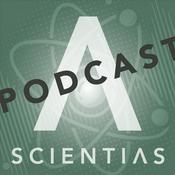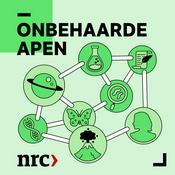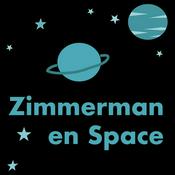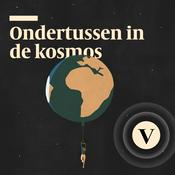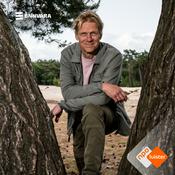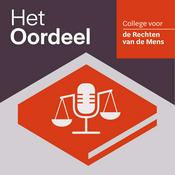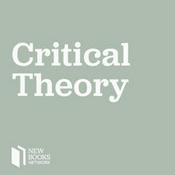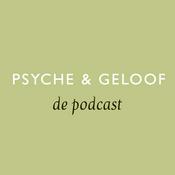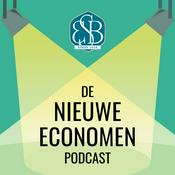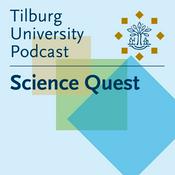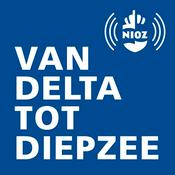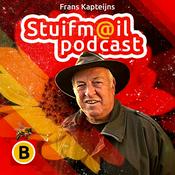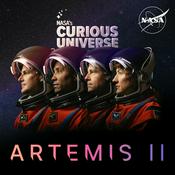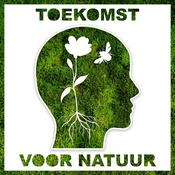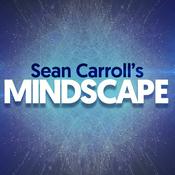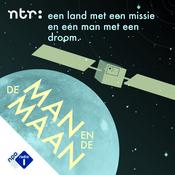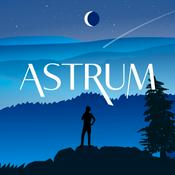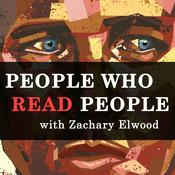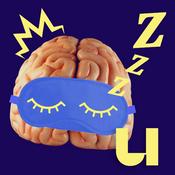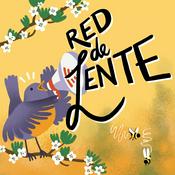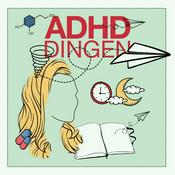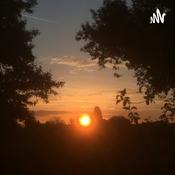21 afleveringen
- Where does a river become sea? And where do eels live? In this episode of Waterlands, Megan McCubbin takes us to the Severn estuary – one of the most dynamic estuarine systems in the world and also one of the most important for wildlife in Britain, in search of eels.
Joining her on this quest, are three eel fanatics, who have come to know and love this slippery fish from three different perspectives.
Michael Malay is an academic and author, whose book about migration and belonging, Late Lights, recalls the first time he held an elver in his hand. He is drawn to estuaries and stories of belonging and remembers how his mind was blown when he first heard the lifecycle of the European eel.
Andy Don explains the elusive nature of the eel and how confounding and fascinating they are from a scientist’s point of view. Once everywhere, all up and down river systems, to the point of being eaten by the poor and used as fertiliser or taxes, the eel is now critically endangered.
And WWT’s Abigail Mckay explains how the Wetlands Bioscience Team is using cutting-edge eDNA technology to find where eels are – and where they are not, in an attempt to help remove barriers and increase their numbers again.
Featuring: Michael Malay, Andy Don and Abi Mackay, Presented by Megan McCubbin
If this episode has inspired you to take action for wetlands or discover more about our rivers, visit wwt.org.uk.
Waterlands is brought to you by WWT. It’s an 18Sixty production, produced by Ellie Richold, mixed by Melvin Rickarby and original music by Noah Bloom. - Amid all the wonderful wildlife that is attracted to rivers, birds are some of the most spectacular. In this episode of Waterlands, Megan McCubbin hears stories of birding and freedom, kingfishers and kittiwakes.
David Lindo, aka the Urban Birder, “hit the wall” a couple of times in a gardenless flat in Spain during lockdown. He shares how he sought out a river as soon as the restrictions were lifted, and was brought to tears by the sight and sound of nightingales and Cetti’s warblers.
The sound-recordist Chris Watson takes a bus into town to visit the very noisy, furthest inland colony of kittiwakes in the world. He explains how the birds choose to spend their summers amid the hustle and bustle of downtown Newcastle, under the Tyne bridge.
And musician Nick Penny reveals what he discovered about the iconic kingfisher when he dedicated a year of his life to watching them on the River Nene near his house.
Featuring: David Lindo, Chris Watson and Nick Penny. Presented by Megan McCubbin
If this episode has inspired you to take action for wetlands or discover more about our rivers, visit wwt.org.uk.
Waterlands is brought to you by WWT. It’s an 18Sixty production, produced by Ellie Richold, mixed by Melvin Rickarby and original music by Noah Bloom. - Have you ever wondered whether you could look at the plants and animals in a river and tell how healthy it is? In this episode of Waterlands, Megan McCubbin invites us on a journey to a sparkling clear chalk stream, where warblers sing and water crowfoot blooms – the River Wylye in Wiltshire.
She’s joined by someone who has spent 45 years working in river conservation and still loves every second; Andy Thomas, Conservation Officer at the Wild Trout Trust, who explains the different life that can be found in the many different habitats of a healthy river, from reeds in the margins to larvae in the silt, weeds in the gravel and fish in the pools.
Zarah Pattison, who hates the word ‘weed’ almost as much as Megan, shares her knowledge of two invasive plants – Japanese Knotweed and Himalayan Balsam - and explains what to do if you find them.
And Senior Reserves Manager, Rosie Ellis takes us on a tour of WWT Arundel, with its SSSI reedbed and toad patrol.
Featuring: Andy Thomas, Zarah Pattison and Rosie Ellis. Presented by Megan McCubbin
If this episode has inspired you to take action for wetlands or discover more about our rivers, visit wwt.org.uk.
Waterlands is brought to you by WWT. It’s an 18Sixty production, produced by Ellie Richold, mixed by Melvin Rickarby and original music by Noah Bloom. - There is little more grounding than walking along a river. Scientists have shown that spending time near bodies of water, particularly while exercising, can boost your overall health and mood. In this episode of Waterlands, Megan McCubbin takes us on a journey to a remote and secret river in rural Wales followed by a city centre river in Cardiff.
Three different river walkers explain why they do it and how it has changed their life. First up, television presenter (and president of WWT) Kate Humble shares her very special walk home with her trusty companion Teg, from the source of the River Wye to where it joins the River Severn near her home.
The writer, Helia Phoenix takes us on a guided meditation and shares her story of ADHD breakdown, diagnosis and recovery, explaining how mindful walking along the River Taff, helped her access the simple beauty all around - the colour of the wall or the sudden crash-landing of a duck onto water.
And Li An Phoa of Drinkable Rivers has been walking for the last ten years for another reason – to bring awareness to her cause, to kick-start a coalition of the willing around each river that she visits, and because she made a promise to the Rupert River in Canada, to do all she could to return to a world with drinkable rivers.
Featuring: Kate Humble, Helia Phoenix and Li An Phoa. Presented by Megan McCubbin
If this episode has inspired you to take action for wetlands or discover more about our rivers, visit wwt.org.uk.
Waterlands is brought to you by WWT. It’s an 18Sixty production, produced by Ellie Richold, mixed by Melvin Rickarby and original music by Noah Bloom. - We are all drawn to the beauty and power of rivers, but have you ever wondered how they have changed us? Or how we have changed them? In this episode, Megan McCubbin takes us to Devon, to meet the river poet Alice Oswald by her ‘pretty little stream’, the Torridge.
Writers and artists through the ages have been drawn to the beauty and power of rivers, and Alice is no exception. The river was a paradise throughout her childhood; a place for skimming stones, catching (and setting-free) minnows and escaping to another reality. She believes we are drawn to the wildness and otherness, as well as to the animals and different, changing landscapes of rivers as they travel from source to sea.
Paul Raven, Author of Rivers: A natural and not-so-natural history, examines the relationship between rivers and people since the ice age and shares how human actions across history have positively and negatively affected the health of our waterways and the creatures that depend on them.
Roisin Taylor, Co-Director of UK Youth 4 Nature shares the important work they are doing to redress the balance and implores us to ‘find a dipper and then you’ll want to save that river.’
Featuring: Alice Oswald, Paul Raven and Roisin Taylor, Presented by Megan McCubbin
If this episode has inspired you to take action for wetlands or discover more about our rivers, visit wwt.org.uk.
Waterlands is brought to you by WWT. It’s an 18Sixty production, produced by Ellie Richold, mixed by Melvin Rickarby and original music by Noah Bloom.
Meer Wetenschap podcasts
Trending Wetenschap -podcasts
Over Waterlands
Immerse yourself in the sounds of the riverbank, crashing tides, wild marshes filled with birds and the underwater sounds of the humble pond as we bring to life our incredible wetlands - and reveal their power to shape our future for the better. Join zoologist and wildlife presenter Megan McCubbin as she explores the wonders of our watery worlds and how wetlands have fed, inspired and transported us from countryside to city, source to sea.
Our wetlands bring us together across species and continents. They’re the source of life as we know it. Yet wetlands only cover about 6% of our planet, and they’re disappearing fast, despite the fact that people and 40% of all wildlife are reliant on them.
This is a podcast all about the wonderful, sometimes surprising and often underappreciated watery places around us, and how they can help us with some of the biggest issues facing life on this planet.
You’ll never look at a marsh or pond the same way again.
Finalist - Best Climate Podcast, British Podcast Awards 2023
Luister naar Waterlands, Scientias Podcast en vele andere podcasts van over de hele wereld met de radio.net-app
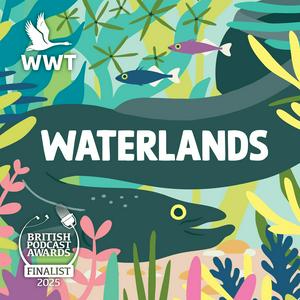
Ontvang de gratis radio.net app
- Zenders en podcasts om te bookmarken
- Streamen via Wi-Fi of Bluetooth
- Ondersteunt Carplay & Android Auto
- Veel andere app-functies
Ontvang de gratis radio.net app
- Zenders en podcasts om te bookmarken
- Streamen via Wi-Fi of Bluetooth
- Ondersteunt Carplay & Android Auto
- Veel andere app-functies


Waterlands
Scan de code,
download de app,
luisteren.
download de app,
luisteren.

